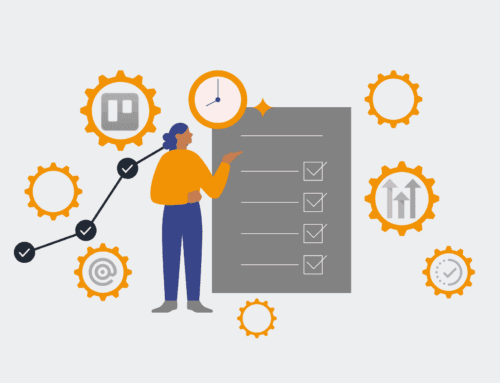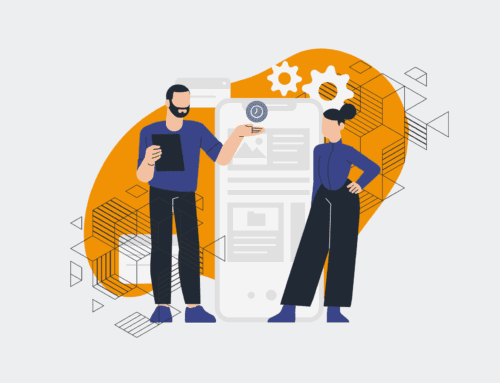Reducing Time-to-Hire: The Role of AI Resume Parsing in Accelerating Recruitment
In today’s fiercely competitive talent landscape, the speed at which an organization can identify, engage, and ultimately hire the right candidate is a critical differentiator. A prolonged time-to-hire isn’t just an administrative inconvenience; it translates directly into lost productivity, missed opportunities, and escalating costs. Businesses striving for sustained growth and operational excellence cannot afford to have their hiring pipelines clogged by manual, antiquated processes. This is where the strategic integration of AI, particularly in the realm of resume parsing, emerges as a transformative solution.
The Bottleneck of Manual Resume Review
For decades, the initial screening of resumes has been a labor-intensive, often subjective, and error-prone undertaking. Recruiters spend countless hours sifting through mountains of applications, manually searching for keywords, cross-referencing experience, and attempting to discern true potential amidst a sea of varied formatting. This manual effort leads to several critical pain points:
- **Inefficiency:** The sheer volume of applications can overwhelm even the most dedicated recruiting teams, leading to significant delays in candidate progression.
- **Human Error and Bias:** Manual review is susceptible to unconscious biases, overlooked qualifications, and inconsistencies in evaluation criteria.
- **High Cost:** Time is money. The more hours spent on rudimentary screening, the higher the operational cost per hire.
- **Poor Candidate Experience:** Delays in response or an impersonal screening process can lead top talent to lose interest and pursue other opportunities.
These challenges create a bottleneck that directly impacts an organization’s ability to scale, innovate, and secure the talent vital for its future. At 4Spot Consulting, we recognize these as prime areas where strategic automation and AI intervention can yield substantial, measurable returns.
Enter AI: A Paradigm Shift in Candidate Screening
AI resume parsing is far more sophisticated than simple keyword matching. It employs natural language processing (NLP) and machine learning algorithms to intelligently extract, interpret, and structure information from resumes and CVs. This technology revolutionizes the initial screening phase, transforming it from a time sink into an accelerated, objective, and highly effective process.
Beyond Keywords: Understanding the Nuance
Traditional resume scanning often misses the forest for the trees, focusing solely on the presence or absence of specific keywords. AI parsing, however, delves deeper. It can:
- **Contextualize Information:** Understand the meaning and relationship between different pieces of data, such as distinguishing between years of experience, specific software proficiencies, and project roles.
- **Standardize Data:** Take disparate resume formats and convert the information into a consistent, structured database entry, making it easily searchable and comparable.
- **Identify Transferable Skills:** Recognize and evaluate skills that may not be explicitly stated but are implicit in a candidate’s work history or project descriptions.
This nuanced understanding allows for a much richer, more accurate initial assessment, ensuring that genuinely qualified candidates are identified regardless of how they’ve structured their resume.
Accelerating the First Touch
With AI handling the initial heavy lifting, recruiters are liberated from administrative burden. This means:
- **Faster Screening Cycles:** Resumes can be processed and evaluated in seconds, not hours or days, dramatically shortening the initial stage of the hiring process.
- **Focus on Human Interaction:** Recruiters can dedicate more time to engaging with truly promising candidates, conducting meaningful interviews, and building relationships, rather than sifting through unqualified applications.
- **Improved Quality of Shortlist:** The AI’s objective evaluation based on predefined criteria (which can be customized to your specific role requirements) ensures that the shortlist presented to hiring managers is highly relevant and qualified.
By automating the data extraction and initial matching, organizations can significantly reduce their time-to-hire, often by 25% or more, while simultaneously enhancing the quality of their applicant pool.
Real-World Impact and Strategic Advantage
The benefits of AI resume parsing extend beyond mere efficiency. It’s a strategic move that delivers tangible business outcomes. Reduced time-to-hire means critical roles are filled faster, minimizing the costly impact of vacancies on productivity and revenue. It fosters a more positive candidate experience, positioning your organization as an innovative and efficient employer of choice. Furthermore, by mitigating human bias, AI parsing helps cultivate a more diverse and inclusive workforce.
At 4Spot Consulting, our OpsMesh framework integrates AI solutions like resume parsing into a comprehensive automation strategy. For example, we helped an HR tech client save over 150 hours per month by automating their resume intake and parsing process using Make.com and AI enrichment, then syncing to their Keap CRM. This transformation allowed them to go from “drowning in manual work to having a system that just works,” proving the profound impact of strategic AI integration.
Implementing AI Resume Parsing: A Phased Approach
Implementing AI resume parsing is not just about adopting a piece of technology; it’s about strategically integrating it into your existing recruitment workflow for maximum impact. A successful integration requires a clear understanding of your specific needs, the configuration of the AI to align with your hiring criteria, and ongoing optimization. This is where our OpsMap™ diagnostic comes into play – a strategic audit designed to uncover inefficiencies and roadmap profitable automations tailored to your unique business context.
By strategically deploying AI resume parsing, businesses can move beyond the reactive scramble for talent to a proactive, data-driven approach. It allows for the rapid identification of top candidates, ensures a fairer evaluation process, and ultimately accelerates the entire recruitment lifecycle. In an era where talent is paramount, leveraging AI isn’t just an advantage—it’s a necessity for sustained success.
If you would like to read more, we recommend this article: The Future of AI in Business: A Comprehensive Guide to Strategic Implementation and Ethical Governance








